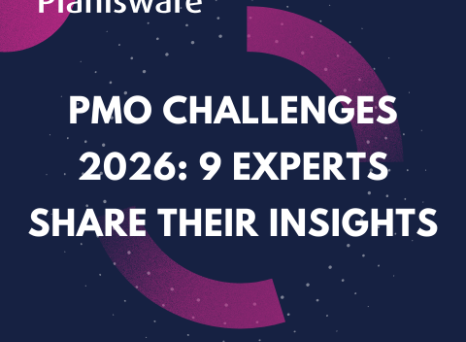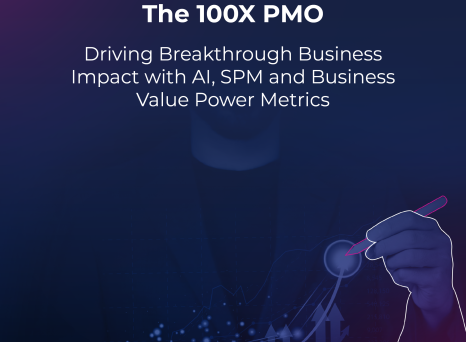There are several psychological phenomena at work in our resistance to change, sometimes called ‘cognitive inertia’.
There are several psychological phenomena at work in our resistance to change, sometimes called ‘cognitive inertia’. Negativity bias, loss aversion, and conformity bias make it harder to effect individual change, let alone organizational change. But transformation is crucial for the survival of even market-leading companies (just ask Nokia) in the PMO.
Project, program, or portfolio management offices (PMOs) have to be change management champions. Only by being so can they reach the top tier of maturity and deliver strategic advantage to their businesses.
Universal Transformation is Only Possible With United Change
Your PMO may face several units at different maturity levels. And you may start to sweat about how to tailor their transformation project to each one. But taking an “a la carte approach” won’t drive the “cultural change [you need] to achieve universal value.
Take the time to understand project management (PM) and non-PM stakeholder requirements. Then, look for integrated PPM tools that fulfill most of these needs. Tools with additional integration and API capabilities will help mitigate barriers to implementation by plugging gaps in functionality and merging with critical databases like business intelligence and finance.
Invest in Tools, Invest More in People
Implementing powerful tools to transform project planning and reporting is a good investment for any PMO. But it won’t achieve change in a silo. Tools are digital, but management is human - the difficulty doesn’t lie in the tools themselves but the people who need to manage them.
The ‘people part’ is the #1 challenge according to transformation executives and project teams. But it’s not insurmountable. Over a third of people are motivated to advance their digital skills out of curiosity, efficiency, and teamwork. The same number cite status like promotions or other recognitions as a motivator. So, survey managers to find out what helps motivate their teams. Then, use those insights to develop initiatives that encourage engagement with new tools and processes.
Why Hiring For Soft Skills Helps Your PMO Reach Maturity
Technical capabilities are essential for PMOs, particularly in data management and analytics. And yet, it's soft skills that can make the difference in reaching maturity.
Influence is Part of the Job
You have to find the best way to communicate and embark towards change with everyone on board. If your PMO is staffed with people who are prepared to leave the comfort of their laptop… go to meetings and bring their insights, you’re more likely to develop relationships and demonstrate the value of your PMO.
Cultural Differences Matter
PM Officers must be able to navigate any cultural differences to help their teams do the same. This might require investment in coaching for your PMO, but it will ease the process of aligning international operations on the objectives of the transformation and communicating the benefits.
Business Knowledge is Power
PMO Leaders who are seeking exceptional talent for their PMO should look from across the wider business.
"Talent from departments like Marketing and Finance come with a lot of business acumen and financial understanding - you just need to teach them the technical skills of a PM."
This also works the other way. Send your technically capable PMs to other parts of the business to improve their understanding and build relationships.
Change Management is a Mindset
“Change management is not just a training plan and a communication plan - it’s a mindset that accompanies skills change.”
You may have a change management project or program with associated costs and timelines. Still, transformation requires a fundamental shift in how your organization views the role (and value) of the PMO. Many PMOs agree that engaging management is crucial to this shift. And they’re in good company. A 2023 study showed that 79% of projects with extremely effective sponsorship will likely meet their objectives.


